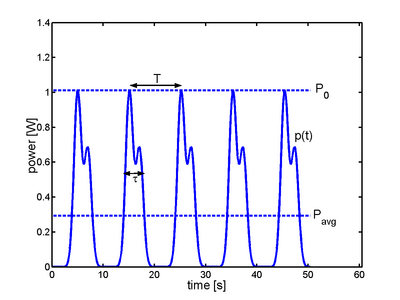| (3 intermediate revisions by one other user not shown) | |||
| Line 1: | Line 1: | ||
| − | = | + | =Periodic versus non-periodic functions ([[Homework_1_ECE301Fall2008mboutin|hw1]], [[ECE301]])= |
| + | <span style="color:green"> Read the instructor's comments [[hw1periodicECE301f08profcomments|here]]. </span> | ||
A function is periodic if and only if there is a Time T > 0 for a function such as: x(t)=x*(t+T) | A function is periodic if and only if there is a Time T > 0 for a function such as: x(t)=x*(t+T) | ||
| Line 7: | Line 8: | ||
| − | + | However, | |
A function is non periodic if there is no such time T > 0 such that: x(t)=x*(t+T) | A function is non periodic if there is no such time T > 0 such that: x(t)=x*(t+T) | ||
| − | |||
| − | |||
| − | |||
| − | |||
Latest revision as of 07:22, 14 April 2010
Periodic versus non-periodic functions (hw1, ECE301)
Read the instructor's comments here.
A function is periodic if and only if there is a Time T > 0 for a function such as: x(t)=x*(t+T)
However,
A function is non periodic if there is no such time T > 0 such that: x(t)=x*(t+T)


